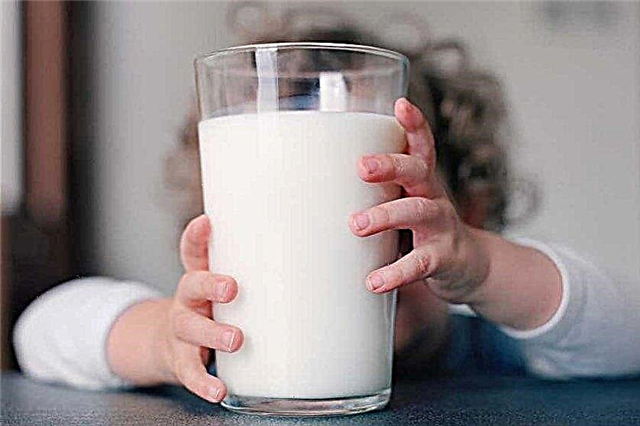Of course, each baby has its own sleep needs, so the parents' task is to calculate his individual "sleepy" schedule. This will make it possible to compose a sleep and wakefulness regime in such a way as to provide the baby with a good rest. It is very important to ensure that your baby sleeps for a sufficient number of hours both day and night. Lack of sleep negatively affects the well-being of the child, makes him whiny and irritable.

Sleep has important functions in maintaining and improving baby's health.
Sleep is the most important function of the body
Somnologists emphasize the vital need for adequate sleep for any person. However, it is most important for the timely physical and emotional development of a young child.
According to pediatricians, with a properly organized wakefulness and rest regime, children grow faster, their metabolic process accelerates.
Healthy sleep protects babies from the negative consequences of life around them: stress, illness, separation from their mother - from everything that can adversely affect their fragile health.
Children's doctors say: "When a baby is sound asleep, it produces special proteins - cytokines, which are involved in the body's response to infection and stress." Therefore, it is so important to monitor the quality and duration of infant sleep.
Note! When making an individual "sleepy" schedule for her child, a mother should take into account that newborns sleep on average 18 hours a day. By one year, the duration of children's sleep is reduced and is already about 13 hours, as the activity of the baby increases, and the time for wakefulness increases.
Duration of children's sleep up to a year
Parents often ask how much a child should sleep day and night. Pediatricians explain that the duration and division of children's sleep into the night and day periods largely depend on the age and mental characteristics of the baby.
However, whatever the specificity of the "sleepy" schedule of a particular child, it is necessary to adhere to the sleep norms of children under one year old recommended by WHO. In accordance with these recommendations, starting from about six months, the daytime rest is divided into two or three visits, and at night the child should sleep without waking up.
At the same time, the duration of "sleepy" periods for all babies is individual, therefore, the orientation towards sleep norms for infants will be approximate. If the mother sees that the baby sleeps less than expected, perhaps this is his individual norm. Therefore, there is no need to worry about its difference from the generally accepted criteria.
Note. The proposed criteria are just guidelines for parents, which will allow them to correctly draw up a routine of wakefulness and rest for their child.

The duration of sleep in babies depends on age and individual characteristics.
Pediatricians insist that the individual routine of each toddler should be equal to the recommended sleep rates for children under one year old.
According to WHO, the following quantitative characteristics of sleep should be included in the mode of infants:
- Up to 2 months - the "sleepy" period is up to 18 hours;
- From 2 to 12 months - the time is reduced to approximately 14-15 hours;
- From a year and older - the total duration of sleep takes 12-14 hours.
Age standards
On the basis of long-term observations and special studies, children's somnologists have developed a table of standards for how much a child should sleep by months, which will support parents in drawing up the daily routine of their little one.
Sleep duration by months
| Age in months | Duration | ||
|---|---|---|---|
| Daytime | Night | Total number | |
| First weeks | 1-2 hours after each awakening | 5-8 hours | 16-20 hours |
| 1-3 months | 5-7 hours | 8-10 hours | 15-17 hours |
| 4-6 months | 3-4 hours | 10-11 hours | 14-15 hours |
| 7-8 months | 2 periods of 1-2 hours. | 10-12 hours | 13-15 hours |
| 9-12 months | 2 periods of 1-1.5 hours. | 11-12 hours | 13-15 hours |
Features of day and night rest modes
According to the age standards compiled by experts, a night's sleep in babies takes from 9 to 12 hours a day, a daytime sleep - from 2 to 5 hours. With regard to dividing the total number of hours into day and night phases and clearly distinguishing between quiet hours, pediatricians calculate them as follows:
- From 2 months and older - babies sleep 2-4 times during the day;
- By 12 months, the number of sleep periods is reduced to 1-2 times.
Important! The increasing activity of the baby, the mastery of such new movements as crawling, standing up with support, lead to the predominance of superficial sleep and frequent awakening. These features must be taken into account in the daily routine of infants, therefore, every three months, the sleep and wakefulness regime is necessarily adjusted.
According to children's doctor Komarovsky, modern children sleep less than they should at their age. He believes that such a disorder largely depends on non-compliance with the regime or its incorrect composition.

By 6 months, the baby should sleep through the night without waking up.
However, most babies are able to sleep through the night without interruption for night feeding by 6 months. If, however, short awakenings occur at night, this does not affect the quality of sleep. Pediatricians believe that such awakenings can occur at a frequency of 4 to 6 times per night and should not bother parents.
Note! A healthy child is able to calm down and fall asleep after a short time on his own, without the help of an adult. If the baby's psyche is easily excitable, or there are health problems, it is difficult for such children to fall asleep on their own, they need the help of their parents.
Pediatricians refer to the most common causes of sleep disorders as an onset of the disease or a sudden change in the usual routine. In the first year of life, some mothers do not always manage to clearly follow the compiled sleep schedule of the child. It happens that in the evening, the baby refuses to go to bed, because he sees that the household is not going to sleep.
Doctor Komarovsky advises in such cases to reconsider the daily routine of the baby and adjust his regime to the general family lifestyle. If the family falls asleep at 11 pm and gets up at 7 am, then it is better to teach the baby to such a schedule. There is nothing wrong with that, since if the morning rise occurs without negative emotions, the time for laying down does not matter for a good rest.
Child's sleep rate per day
In order for the infant's schedule to be drawn up correctly, pediatricians recommend referring to the WHO data, according to which the daily sleep rates of an infant are as follows:
- The newborn sleeps up to 20 hours a day for the first week, the breaks between feedings vary depending on the type of feeding. During this period, the mother adjusts to the child's regime;
- From 1-3 months, the total rest time is reduced to 17-18 hours, with daily periods up to 4 times. The maximum duration of wakefulness is from 1 to 1.5 hours;

The child's need for sleep depends on his well-being and biological rhythms
- From 3 to 6 months, the child's total "sleepy" time is reduced and is approximately 17 hours, the number of days of rest - 3-4 times. The wakefulness between them is 1.5-2 hours;
- From 6 to 9 months, the reduction in sleep goes up to 15 hours, the baby switches to three daily naps;
- From 9 months to a year, the total duration of sleep is 15 hours, for a "quiet hour" two times are enough, approximately 1.5 hours each;
- By the time they are one year old, most babies have one 2-3 hour afternoon rest.
Important! Such a distribution for periods is very arbitrary, since often children themselves determine their regime in accordance with biological rhythms. In this regard, it is useful for every mother to carefully observe the behavior of the baby.
The need for a longer sleep period may increase during crumbs' illness, after suffering emotional turmoil, with fatigue. In such situations, it is necessary to create calmer and more comfortable conditions, since their abrupt change can negatively affect the state of the child's psyche.
On the contrary, you cannot forcefully lay a baby if he does not show a desire to sleep. Most babies sleep about 13 hours on average by one year. If the crumb violates the norms, but at the same time feels good, then there is no cause for concern even with an unstable daytime rest.
How to maintain healthy sleep in children under one year old
In order to help a child of the first year gradually get used to the daily routine, it is necessary to adhere to a certain rule: to teach to fall asleep and wake up at a certain time.
Laying the baby in the evening, taking into account the recommendations of pediatricians, you can be sure that he will sleep better and be less capricious during the day:
- Use rituals for night and day sleep;
- Prepare bedding: a flat mattress, bedding made from natural fabrics, a diaper in size;

For good sleep, it is important to properly prepare a sleeping place for a child.
- Maintain a comfortable temperature in the children's room up to 20 degrees to avoid overheating the baby at night;
- Adhere to the daily routine, as a nursing baby, accustomed to keeping within the schedule, sleeps better and better at night;
- Do not shorten the daytime "quiet hour" for any reason, so as not to lead to overwork and restless sleep at night;
- To be able to understand the "sleepy" signals that the baby gives when it wants to fall asleep. Putting him to bed sleepy, not awake.
The main thing is that the mother must understand that the existing age norms are subject to adjustment if it is not possible to form a sleep pattern for a particular baby on their basis. For children, in whom excitement and anxiety are manifested especially strongly and often, an individual routine of wakefulness and rest is drawn up, which may differ from generally accepted standards.



